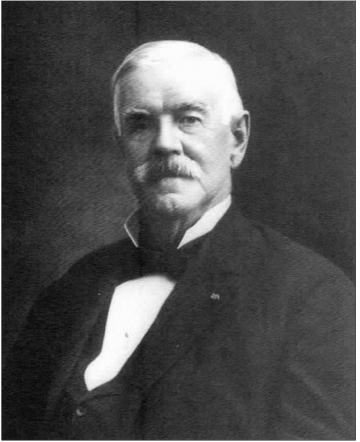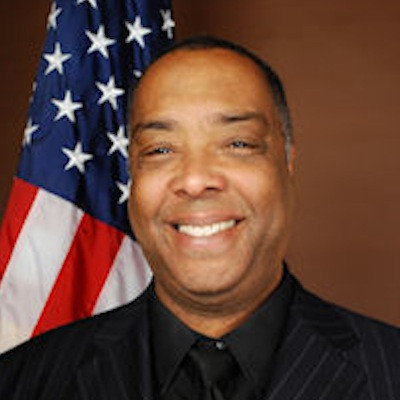Scoundrels: Chapter 5 The Bloodless Revolution
Monday, January 30, 2017
Each week, GoLocalProv will publish a chapter of the book Scoundrels: Defining Corruption Through Tales of Political Intrigue in Rhode Island, by Paul Caranci and Thomas Blacke.
The book uses several infamous instances of political corruption in Rhode Island to try and define what has not been easily recognized, and has eluded traditional definition.
The book looks at and categorizes various forms of corruption, including both active and passive practices, which have negative and deteriorating effects on the society as a whole.
GET THE LATEST BREAKING NEWS HERE -- SIGN UP FOR GOLOCAL FREE DAILY EBLASTBuy the book by CLICKING HERE
Chapter 5
The Bloodless Revolution
One of the most intriguing developments in Rhode Island’s political history, certainly the one that may have had the greatest immediate impact on the government as we know it today, may well be the Green coup of 1935 or “The Bloodless Revolution” as it has come to be known. On the first day of that year, the Democrats, in a political maneuver seemingly designed by Machiavelli himself, turned Rhode Island state government inside out.
To understand the passions that led to the events of January 1, 1935, it is important to first understand the political history of the time. Rhode Island had been under the firm grip of Republican machine politics since 1856. The Republican state legislature was the center of power that controlled, in grand machine style, everything that was important. During the Republican reign, the state was gerrymandered in such a way that in 1900, according to Erwin L. Lavine, 28 municipalities representing just 18% of the population elected 28 senators, nine more than a majority of the Senate. The ten largest municipalities, responsible for 82% of the population, elected only 10
“Even until 1957, only 3.7% of the state’s population was able to elect over 30% of the Senate.” Because the political nature of the rural areas tends to be Republican, the Senate Republicans were able to easily defeat any legislation that they considered dangerous to their interests.
In the early 1900’s the Governor had little power. He had very little administrative authority under the constitution and could not veto legislation. He could make recommendations only and couldn’t investigate any department or administration or demand reports without Senate approval. The Senate had to approve all measures passed by the House and had the power of appointment. The Senate, therefore, held the real power and it was under the control of machine boss General Charles Brayton “who traced his Rhode Island roots back to 1643 and the founding of his native Warwick.” He was heir to a very prominent family with a political history. His father, William, served the state as a two-term Republican Congressman from 1857 to 1861. Charles Brayton himself boasted a distinguished military career in the Civil War as both a General and the Chief political lieutenant of U.S. Senator Henry Bowen Anthony, the principal organizer of Rhode Island’s Republican Party.
Anthony helped Brayton secure his own political positions that included U.S. Pension Agent for Rhode Island, U.S. Postmaster for Providence, and a long tenure as the Rhode Island Republican Party Chairman, a position he was able to maintain even though scandal chased him from his Postmaster position. His political career spanned four decades over which time he “manipulated the politics of Rhode Island as the prototypical boss of a highly successful rural-based political machine.”
Lavine tells how Brayton specialized in “buying the voters of the small towns.” From his perch in the state house office of the High Sheriff of Providence, he barked his orders in military fashion. He was so much a part of house after planting a sign on the lawn that gave his home address in case of emergency. The caption read “General Assembly Adjourns.”
One of the elements of his power was a 1901 law that bears his name. The Brayton Law of 1901 “made it impossible for a governor, whose legal powers of appointment were quite limited to begin with, to make any appointment without Brayton’s consent.” The law required the Senate to act on any gubernatorial appointment within three days. If the Senate failed to act within the prescribed time, the governor lost his power to appoint and the Senate could then appoint its own nominee to the post. This assured that all patronage power for the entire state was in the control of the senate, not the governor. Rhode Island historian, Patrick T. Conley, notes that in addition to his leadership qualities and reputation as a “stern disciplinarian,” Brayton’s success was in “his ability to control the General Assembly through old-stock rural legislation from the country towns, because each of the state’s municipalities, regardless of size, had one vote in the Senate.”
In addition to the above, the Republican’s power was also secured because 60% of the state’s population “was disenfranchised until 1888. Until that time, only “native” males could vote which meant of course that the large immigrant populations of the cities were politically neutralized.” Even after the word “native” was stricken from the law in 1888, the already substantial property ownership requirement was not only maintained, but also strengthened to include elections of municipal council seats. Therefore, the immigrant population, while being allowed to vote in mayoral elections, still had no voice in the election of municipal councilors. This is significant because, unlike today, at that time, city councilmen, not the mayor, controlled city patronage. In addition to controlling state patronage then, the Republicans kept a firm grip on municipal patronage. No one could work at any level of government without the consent of the Republican Party bosses. This reach also extended deep into the private sector job market.
Finally, the Republicans controlled the finances upon which elections were run. Richard A. Gabriel, PhD, author of a University of Rhode Island Research Paper entitled The Political Machine in Rhode Island, explains that the “financial support was drawn from two outlets; first, sheriff’s fees and kickbacks from patronage appointees and second, from the Hartford-New Haven railroads, banks, insurance companies, electric railway companies and mill owners. In short, the Republican machine extracted heavy fees from businessmen who wanted special favors. It was of course no accident that Brayton himself was the chief lobbyist for all these substantial business interests.”
With control over all patronage jobs, and with the financial ability to ensure the election or re-election of all its candidates, the Republican Party could virtually do whatever it pleased with no regard for the people and no fear of losing their positions.
Slowly over time, however, the Democrats were able to make some inroads into the Republican control. Because the Republicans were entrenched in the suburban areas, the Democrats were forced to look for strength in the cities where ethnic immigrants were moving in large numbers. Yet, this new found Democratic base was ineligible to vote because of the disenfranchisement restrictions.
The Democratic cause was given a significant boost in 1928, however, when the property qualification for participation in the elections of councilmen was eliminated. At the same time, the nation was in the midst of the great depression. Nationally, “Franklin D. Roosevelt, through the creation of federal welfare programs, provided a source of relief and help to the traditional clients of the machine and thereby deprived the machine of much of its loyalty gained through the provision of social and economic services.” Add to these developments two close Senate races in the election of 1934, and the stage for the “revolution” was set.
In the years since 1928, operating on the strength of the new immigrant voters, the Democrat Party was becoming more organized and gaining General Assembly seats in each successive election. These were the conditions that Theodore Francis Green, a Democrat first elected governor in 1932, faced when he began his long career in Rhode Island politics. Functioning under the Brayton Law of 1901, he was powerless in the face of the Senate still under Republican rule.
In his re-election of 1934, Green found fortune in a Democrat takeover of the House of Representatives for the first time since the Civil War. The slim eight vote margin in the House assured that the cohesive, power-starved Democrats would emerge victorious on every vote. The Senate, however, was still under Republican domination, but by the slimmest of margins - two seats - with 22 seats being held by Republicans and 20 seats in Democrat hands.
Democrats, who for the first time in seventy-eight years were sensing that power was within their reach, would find a way to take advantage of election fraud allegations in the two close elections. In the Portsmouth Senate race, the Democrat lost by only 39 votes while in South Kingstown the Democrat lost by 61 votes. Allegations of fraud abounded in each of those races. Democrat Lt. Governor, Robert E. Quinn, described by United States Senator John O. Pastore as “a very forceful man and an idol of mine,” refused to swear in the Republican winners until an investigation into the fraud charges could be conducted. “There ensued a series of secret meetings at Green’s home. Among the participants were Quinn, key Democrat legislators and US Attorney J. Howard McGrath. Seizing upon a constitutional provision making each legislative chamber the judge of the elections of its own members, Quinn came up with the strategy of having a special Senate committee recount the ballots in the Portsmouth and South Kingstown races. Everything was choreographed – as the Republicans were shocked to discover.”
Using the authority of his office, Lt. Gov. Quinn announced on the first day of the General Assembly session that in response to protests he received against the seating of Republican Senators elected from Portsmouth and South Kingstown, he would not swear them in until the allegations of fraud could be investigated and a recount of the ballots could be achieved. The Senate, therefore, was deadlocked at 20 Democrats and 20 Republicans. Lt. Gov. Quinn, a Democrat, would now be in a position of casting the tie-breaking vote on all matters. With little debate or fanfare, the Democrats took advantage of the stunned Republican Senators by establishing a three-member committee comprised of two Democrats and one Republican to count the ballots in the two disputed races. The Committee took to its charge immediately, and by evening of that same day, reported that the two Democrat challengers, and not the Republicans, had actually won the Senate elections in Portsmouth and South Kingstown.
The newly announced Democrat victors were sworn-in almost immediately and the coup was in full motion. One of the first acts of the new Democrat controlled Senate was to vacate all judicial appointments to the State Supreme Court. Historian William G. McLoughlin told Journal-Bulletin Political Reporter M. Charles Bakst, “Once the Democrats put themselves in control of the court, the GOP would have no way to appeal the ‘revolution’ ”. Senator John O. Pastore, who told Bakst, that he didn’t know about the revolution until the morning of the opening session, admitted that the “problem with the court was an old story."
Democrats thought the Supreme Court was very conservative, was anti-Democratic. Election cases that reached the court always went against the Democrats, and the resentment was ‘brewing for a long period.’ ” The measure to vacate the court was ushered through the Senate in just a few minutes.
The House of Representatives, while engaging in a livelier debate over the issue, came to the same conclusion. In that chamber, Republican Representative Walter Curry argued, “What are we coming to when not even the courts of the State are safe from patronage? There isn’t one man in Rhode Island who can say one word against the integrity and ability of the present court and the honesty of each member. You even stoop to throwing the sop of a pension to justices if they withdraw immediately and no longer exercise their duties. You do that because you fear your own action tonight might be brought against that Supreme Court.”
Pawtucket Representative Harry F. Curvin, who would later become the longest serving House Speaker in Rhode Island history and then Chairman of the powerful RI Board of Elections, carried the Democrats water. He said in reply simply, “We are giving the people of the State what they requested by their votes on November 6th. The people last November voted for something more than mere candidates. They voted for what they had a right to have and they gave a mandate to the Democratic Party to give it to them.”
Just like that, Chief Justice Charles F. Stearns along with Associate Justices Elmer J. Rathbun, John W. Sweeney, John S. Murdock and J. Jerome Hahn, all Republicans, were voted off the Supreme Court.
Immediately following House support for the motion to declare the court vacant, and very late into the night, a Joint Session convened for the purpose of electing new members of the Rhode Island Supreme Court. House Majority Leader Edmund W. Flynn, at the urging of Pawtucket boss Thomas P. McCoy, and after threatening to interrupt Governor Green’s reforms in the House if he weren’t selected, was chosen as the new Chief Justice. Along with Flynn, Democrats Francis B. Condon and William W. Moss, and Republicans Hugh B. Baker and Antonio A. Capotosto were also appointed to the Court.
The Brayton Law, the law that essentially stripped the governor of his ability to make appointments providing that power to the Senate, was also promptly repealed.
Those who went to bed early on that 1st day of January 1935 would wake up the next morning to find out everything had changed. The Governor, the House of Representatives, the Senate and the State Supreme Court were now all under the firm control of the Democrat Party. Some 80 independent boards or commissions had been replaced with 11 departments of government also under control of the Democrats. While machine politics would still be the order of the day, the agenda of the new machine was dramatically different and the base of political power shifted from the rural areas to the urban centers.
Republicans held power for too long and power corrupts. The good people who held Republican control over the governmental system lost sight of why they held political office and of whom they were elected to serve. However, in seizing the opportunity to bring an end to what they perceived as a corrupt government, the Democrats resorted to political trickery, itself a form of corruption. They took advantage of the circumstances before them to wrest control of an entire government away from the Republicans whom the Democrats perceived as the real corrupt power brokers.
Two wrongs, as they say, don't make a right and the ends simply don't justify the means. The events of the Bloodless Revolution epitomize the meaning of circumstantial corruption.
Paul F. Caranci is a historian and serves on the board of directors for the RI Heritage Hall of Fame. He is a cofounder of, and consultant to The Municipal Heritage Group and the author of five published books including two produced by The History Press. North Providence: A History & The People Who Shaped It (2012) and The Hanging & Redemption of John Gordon: The True Story of Rhode Island’s Last Execution (2013) that was selected by The Providence Journal as one of the top five non-fiction books of 2013. Paul served for eight years as Rhode Island’s Deputy Secretary of State and for almost seventeen years as a councilman in his hometown of North Providence. He is married to his high school sweetheart, Margie. They have two adult children, Heather and Matthew, and four grandsons, Matthew Jr., Jacob, Vincent and Casey.
Thomas Blacke has devoted his life to marketing, media and public relations and currently runs his own marketing, PR and security consulting firm. He has worked on many high level political campaigns, served as a lobbyist, and has held leadership positions in the local Democrat Party. Thom is also a professional magician and escape artist who holds multiple Guinness® World Records for escape artistry with ten world records in all. Blacke is the Editor/Publisher of an international magazine and the co-creator of a TV reality show. This is his seventh book.
Related Slideshow: Rhode Island’s History of Political Corruption
Related Articles
- Scoundrels: Chapter 1, Bugs in City Hall
- “Scoundrels” Introducing Paul Caranci and Thomas Black’s Book on RI Political Corruption
- Scoundrels: Chapter 2, Real Estate Is Not the Only Thing for Sale
- Scoundrels: Chapter 3 Part 1, Cash in the Dumpster
- Scoundrels: Chapter 3 Part 3: Judge Domenic Cresto & Pre-Trial Shenanigans
- Scoundrels: Chapter 3 Part 2, Brusini Suffers Personal & Business Setbacks
- Scoundrels: Chapter 4 “It’s Not My Loan”

























